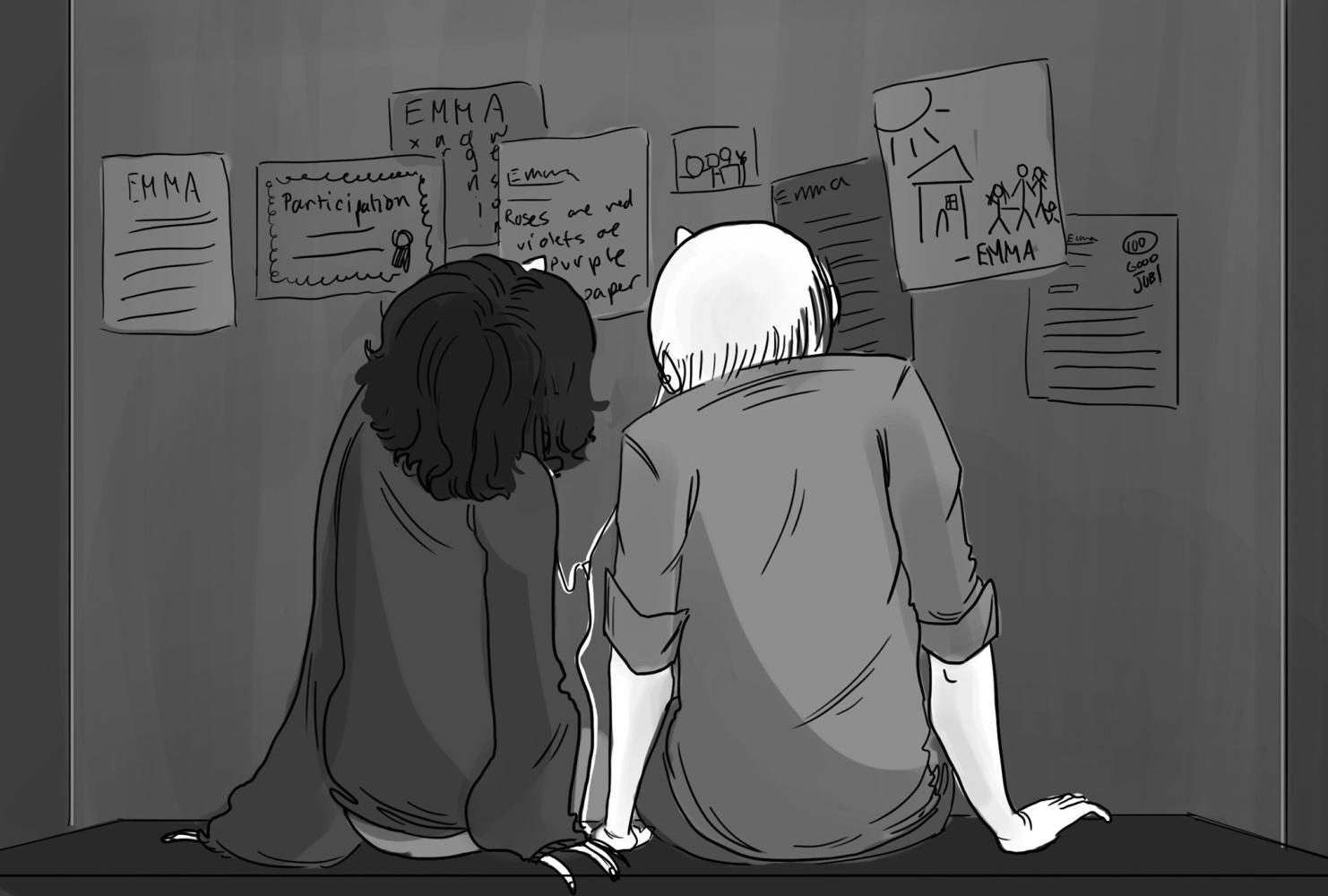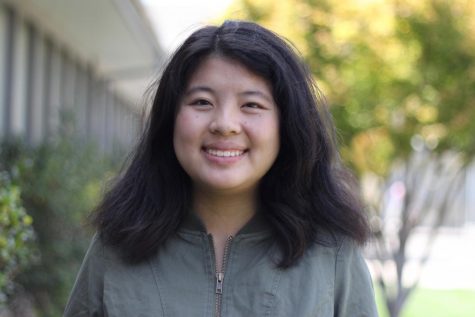Baby Steps: Navigating Generational Differences
May 9, 2017
For the most part, we fit the mold of a stereotypical grandfather and granddaughter. My grandparents’ walls are lined with photos, worksheets and art that my parents have sent, seemingly meaningless artifacts from my time in elementary school, but they are hung like college diplomas. There’s messily written poetry from the second grade and pride for accomplishments they’ve only heard about in muffled conversations over the phone. We sit together as a family at the dinner table, our phones hidden away in place of enthusiastic conversation. I feel a certain comfort when we visit my grandparents because their city feels like a second home.
Yet there’s still a disconnect: I don’t know much about my grandfather’s life before I was a part of it. Our interactions are often one dimensional; he asks about school, and I ask about his favorite sports team. We attempt to talk over a friendly game of mahjong, although he spends most of his time squinting at his tiles, motioning for other players to move faster. There’s impatient tapping and clicking, and for once, he moves quicker than I do. My subpar Taishanese and his disjointed English don’t help the situation, but aside from linguistic differences, conversations with him usually are a little bit different.
There’s a certain simplicity to our exchanges that I have come to appreciate, despite the fact that the lack of complications can be restrictive. It’s easy to approach a conversation without worrying about judgement or external tension — in that sense, his unconditional support is gratifying, because it’s a version of affection that doesn’t involve assuming the worries that my parents have as a result of their close proximity to my academic life.
It’s always a compromise when it comes to family. We have to recognize generational and cultural differences, navigating around the details of our lives as if we are walking across a room of broken glass, because the most loving relationships are never completely transparent. In a conversation with my grandfather, the world takes on a utopian quality in which there is no stress, no sickness and no sadness. We disguise our worries and fears in an effort to maintain a feeling of blissful ignorance, the norm around a society of high blood pressures and frequent doctor’s visits.
We have limited knowledge about each other because we choose to keep to ourselves, because we have trained our minds to believe that our differences in age serve as barriers to understanding. It’s the intimidating aspect of overcoming and embracing differences in our upbringings and perspectives of the world that continues to make improving our relationship easier said than done. It’s difficult to imagine a situation in which we are able to live in our utopian world, where my grandfather’s bad days don’t cut him off from any conversation and where my headphones don’t do the same.
Our barriers are not impossible to break, but I sometimes wonder whether it’s possible to repair a relationship that isn’t truly broken. There’s another part of me that can’t help but be worried, because as my schedule begins to include college applications and extracurriculars, visiting family becomes an afterthought.
Time is limited, because growing up inevitably means leaving a childhood of guaranteed visits to my grandparents behind. It’s bittersweet, because it’s those memories and in-person interactions that have shaped our relationship, and I can’t help but wonder how our new reliance on digital media will change the way we communicate. I distinctly remember one game of mahjong that I played last year on one of my grandfather’s good days. We chatted about strategy, he talked about his favorite sports team, and we laughed because my sister won every game.
It’s the subtleties of our interactions that made the difference, noticing details that have been learned in baby steps. It takes baby steps to learn to play mahjong, to assimilate to a new culture and to learn more about the complexities of a person. And for the sake of all the worksheets that still hang on my grandparent’s walls, those steps are worth taking.




